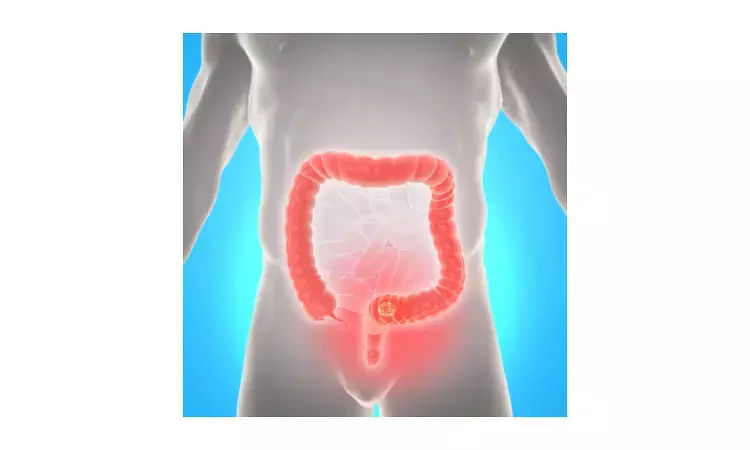- Home
- Medical news & Guidelines
- Anesthesiology
- Cardiology and CTVS
- Critical Care
- Dentistry
- Dermatology
- Diabetes and Endocrinology
- ENT
- Gastroenterology
- Medicine
- Nephrology
- Neurology
- Obstretics-Gynaecology
- Oncology
- Ophthalmology
- Orthopaedics
- Pediatrics-Neonatology
- Psychiatry
- Pulmonology
- Radiology
- Surgery
- Urology
- Laboratory Medicine
- Diet
- Nursing
- Paramedical
- Physiotherapy
- Health news
- Fact Check
- Bone Health Fact Check
- Brain Health Fact Check
- Cancer Related Fact Check
- Child Care Fact Check
- Dental and oral health fact check
- Diabetes and metabolic health fact check
- Diet and Nutrition Fact Check
- Eye and ENT Care Fact Check
- Fitness fact check
- Gut health fact check
- Heart health fact check
- Kidney health fact check
- Medical education fact check
- Men's health fact check
- Respiratory fact check
- Skin and hair care fact check
- Vaccine and Immunization fact check
- Women's health fact check
- AYUSH
- State News
- Andaman and Nicobar Islands
- Andhra Pradesh
- Arunachal Pradesh
- Assam
- Bihar
- Chandigarh
- Chattisgarh
- Dadra and Nagar Haveli
- Daman and Diu
- Delhi
- Goa
- Gujarat
- Haryana
- Himachal Pradesh
- Jammu & Kashmir
- Jharkhand
- Karnataka
- Kerala
- Ladakh
- Lakshadweep
- Madhya Pradesh
- Maharashtra
- Manipur
- Meghalaya
- Mizoram
- Nagaland
- Odisha
- Puducherry
- Punjab
- Rajasthan
- Sikkim
- Tamil Nadu
- Telangana
- Tripura
- Uttar Pradesh
- Uttrakhand
- West Bengal
- Medical Education
- Industry
Low Vitamin D levels may increase infectious complications after colorectal surgery

Colorectal cancer (CRC) is the second cause of cancer-related mortality worldwide, and radical resection is still the treatment of choice for its management however it has its own complications. Therefore determination of the modifiable risk factors for preoperative complications is particularly significant in patients undergoing colorectal surgery.
An observational study by B. Balci and team has revealed that vitamin D levels might be a potential risk factor for infectious complications in patients undergoing colorectal cancer surgery.
The findings of the study are published in BMC Surgery.
The objective of the study was to evaluate modifiable risk factors for postoperative complications in patients undergoing colorectal surgery and their association with worse long-term outcomes.
The study's primary outcome was to demonstrate the relation between 25-OH vitamin D levels and postoperative complications. The secondary outcome was to evaluate its relationship with histopathological grading and pTNM staging.
The study was single-center observational study of consecutive newly diagnosed 104 colorectal cancer patients. Preoperative serum 25-OH vitamin D levels were measured and analyzed for infectious and postoperative complications.
The results of the study were
• Serum 25-OH vitamin D levels were found to be < 20 ng/ml in 74 patients (71.2%) and ≥ 20 ng/ml in 30 patients (28.8%); and the mean serum 25-OH vitamin D level was 15.95 (± 9.08) ng/ml.
• In patients with surgical site infection and infectious complications, 25-OH vitamin D levels were significantly lower than patients without complications (p = 0.036 and p = 0.026).
• No significant difference was demonstrated in 25-OH vitamin D levels according to overall postoperative complications.
Balci and team concluded that "Our results suggest that vitamin D levels might be a potential risk factor for infectious complications in patients undergoing colorectal cancer surgery."
Reference:
Balci, B., Kilinc, G., Calik, B. et al. The association between preoperative 25-OH vitamin D levels and postoperative complications in patients undergoing colorectal cancer surgery. BMC Surg 21, 369 (2021). https://doi.org/10.1186/s12893-021-01369-y
Medical Dialogues consists of a team of passionate medical/scientific writers, led by doctors and healthcare researchers. Our team efforts to bring you updated and timely news about the important happenings of the medical and healthcare sector. Our editorial team can be reached at editorial@medicaldialogues.in.
Dr Kamal Kant Kohli-MBBS, DTCD- a chest specialist with more than 30 years of practice and a flair for writing clinical articles, Dr Kamal Kant Kohli joined Medical Dialogues as a Chief Editor of Medical News. Besides writing articles, as an editor, he proofreads and verifies all the medical content published on Medical Dialogues including those coming from journals, studies,medical conferences,guidelines etc. Email: drkohli@medicaldialogues.in. Contact no. 011-43720751


